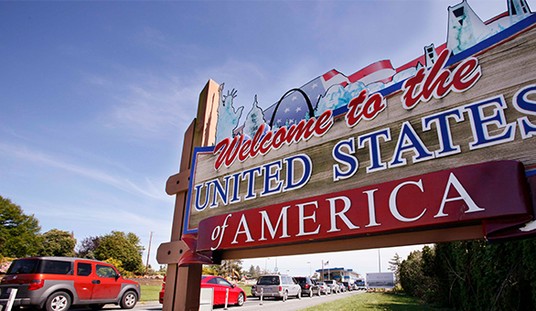Only those who aren’t native Chicagoans thought that Rahm Emanuel would not run for the office of mayor. “It’s a political dead end,” two of the most sophisticated, but non-native observers of Chicago politics that I know said to me over the din of the DJ’s ear-splitting music in the bar of W Chicago Lakeshore.
Like news, in America, most politics is local. In Chicago, all politics is local. And all politics is identity politics, the crudest kind of identity politics. The kind that makes Representative Loretta Sanchez’s race in California look like something aimed at the national interest.
The mayor’s office is a kingdom that dispenses enormous patronage and holds at bay the competing ethnic-anointed lords and their minions. Chicago’s mayors and even powerful aldermen have no aspiration for anything else.
Vito Marzullo, often inaccurately described as the last of the old machine bosses, ran the 25th Ward like a sovereign duchy out of the Holy Roman Empire. Approached to run for the U.S. Senate, Marzullo thought about it for a few days and then gave a response that only those who understand Chicago politics could appreciate. Marzullo concluded that a senator could dispense half a dozen or so jobs at most, while as alderman he controlled hundreds if not thousands of jobs. Marzullo thought the Chicago organization was trying to “screw” him by sending him to the Senate.
Chicago’s dynamic and architecturally impressive skyline now belies a city that is broke in a state that is insolvent. The tax base is waning, forcing increases among those who can still pay. There are insufficient epithets in the language to appropriately describe the condition of the public school system. Street gangs brazenly stand before the media and demand a piece of the ever-shrinking pie. There are now insufficient resources to buy the cooperation of the ethnic political nobility, let alone the gangs.
Chicago has always been a challenge, but it is now even more so. It is the kind of challenge made for someone with Rahm Emanuel’s experience and ego. It is clearly not one that can be met with a repetition of the disastrous policies Emanuel helped craft for the Obama administration. But Emanuel’s biggest problem is that he has little credibility with the black community, which comprises 35% of the city.
Each ethnic group will field its own candidates. In the black community, the current favorite is state Senator James T. Meeks, the latest spiritual advisor to President Obama. Reverend Meeks is described as a man who sees all politics through the color spectrum and little else. As a social conservative, the outspoken Meeks is practically at war with the gay community. Meeks needs a crossover white vote to win, but liberals, those most likely to cross the racial divide, are put off by his anti-gay agenda and his flamboyant proposals to solve the school crisis by equalizing the tax-based allotment per pupil.
Even liberals know that kids at suburban New Trier High School do better than kids in Chicago because of a lot of factors that have nothing to do with property-tax funding disparities. And of course the teachers’ unions and the education bureaucracy will swallow whole any new sources of revenue.
Hispanics can’t win in Chicago without a black crossover vote, and that is unlikely. Blacks and Hispanics are generally in direct competition for the same resources, albeit Hispanics have become far more socially mobile than blacks. The optimal strategy for the Hispanics is to become the political power broker between the whites and the blacks, but Hispanic candidates will enter the field. City Clerk Miguel del Valle has already announced his candidacy.
Can Emanuel transcend race? There are not enough whites to elect him, and many older whites returning to the city have no interest in the tax-and-spend policies Emanuel represents. Emanuel is not liked in the black community, a community for which Emanuel’s being Jewish is an additional problem. President Obama can be counted on to sit out the primary having two dogs — Meeks and Emanuel — in the fight.
Sheriff Tom Dart has also entered the race. A reform-minded civic leader who won a seat in the Illinois legislature by achieving credibility with the black community, Dart is, by any political standard, squeaky clean. He is also the all-round best hope for Chicago. Although white, Dart’s political career typifies the post racial, post-identity politics that Barack Obama’s campaign promised and didn’t deliver. Dart’s politics have been characterized by creative innovation, compassion, and an assault on corruption. The question is whether he can win in a city dominated by an ethno-nationalist mindset.
The primary will basically reflect the identity politics of the city of neighborhoods, identity politics with a vengeance, something out of the early part of the 20th century — something which the Loretta Sanchez campaign in California typifies and something America is regressing toward. Before it’s over, ethnic identity will be the most serious factor in the political contest.
The hope for Chicago is that the identity communities will field so many candidates that they will divide; that Emanuel will draw an insignificant part of the white vote; and Tom Dart will emerge as the Democratic candidate and, de facto, the mayor. Dart’s victory would be a break with the identity politics that made Chicago a series of fiefdoms without a transcendent political interest.
Chicago, despite its problems, is one of the world’s great cities. It deserves a great future.









Join the conversation as a VIP Member